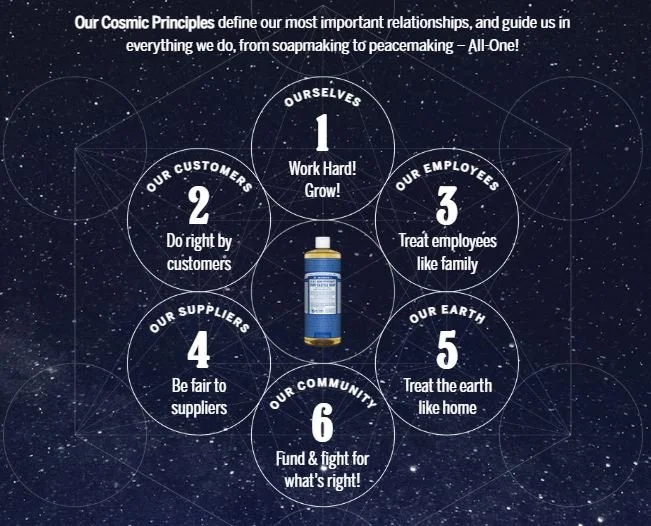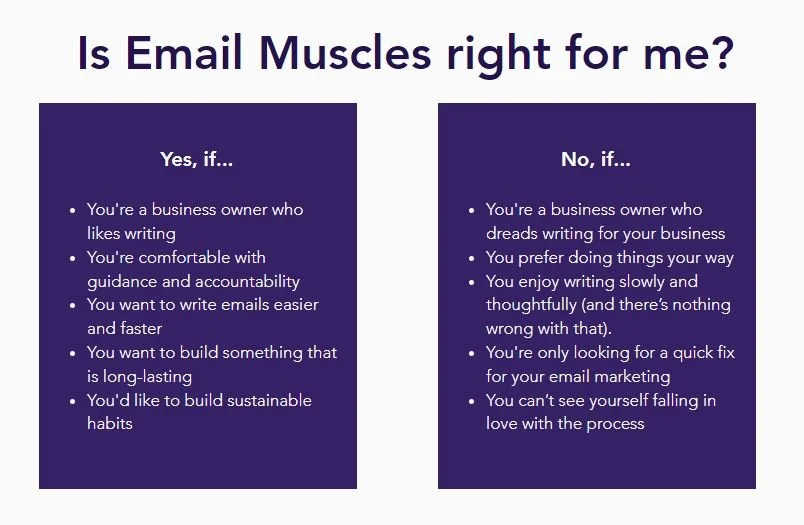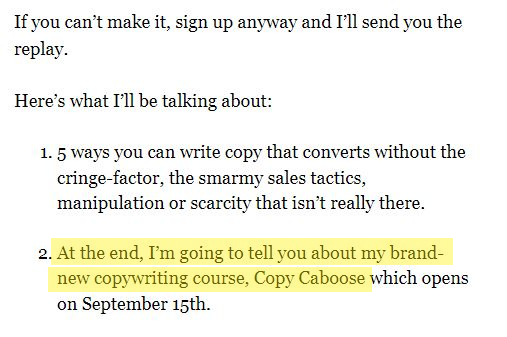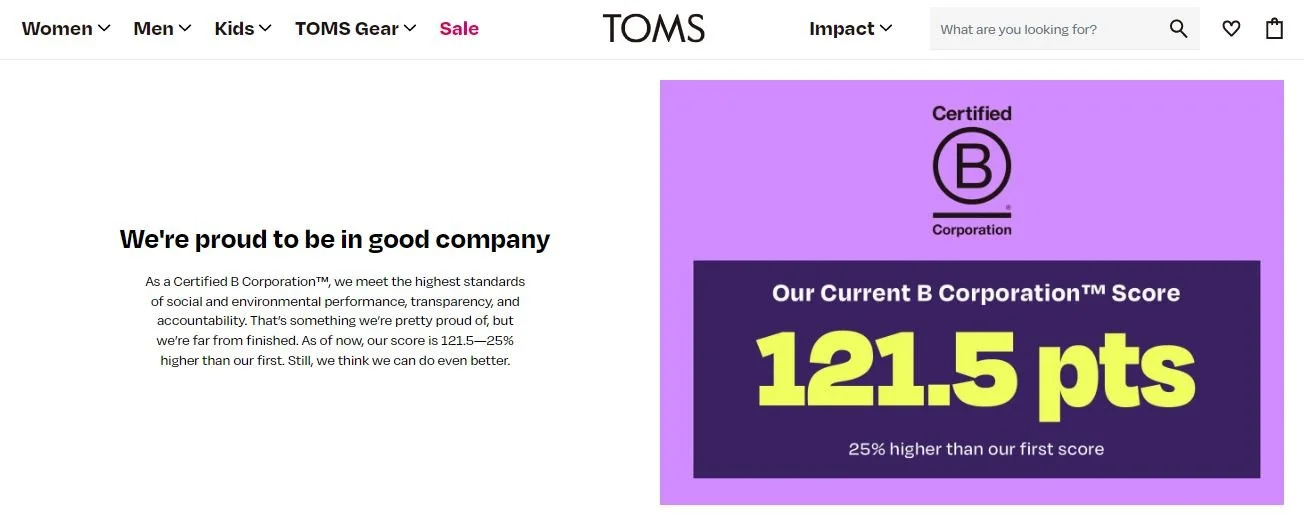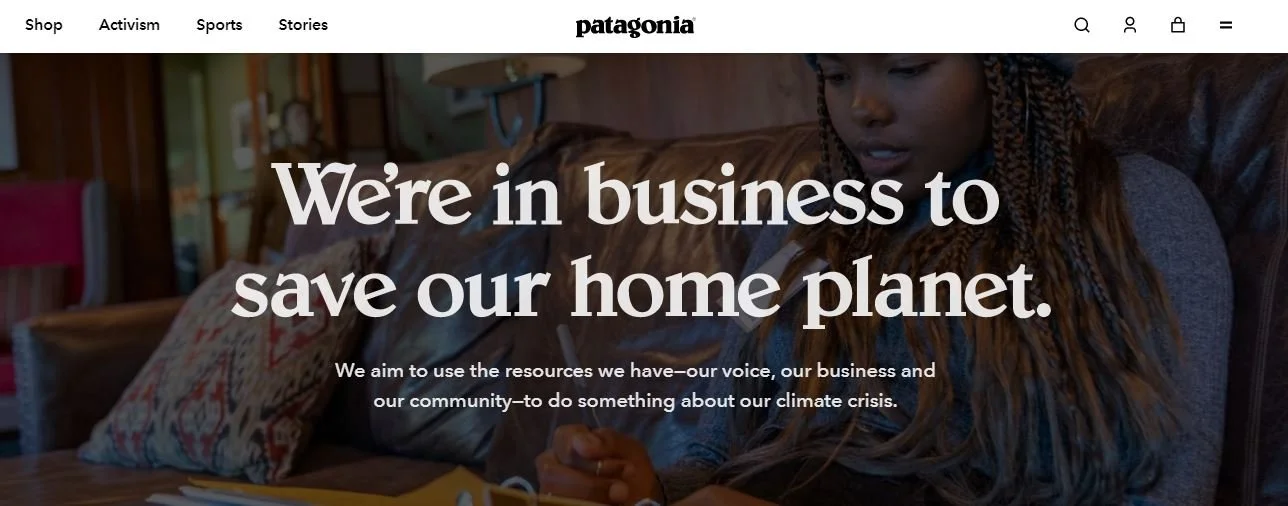Is ethical persuasion an oxymoron?
Persuasion is the mark of a good marketer. But it can be a slippery slope, ethically speaking.
How do we use persuasion in the right measure and manner in order to keep humanity and integrity first on the priority list—where they belong?
Cringeworthy is out, human connection is in
If you’re in the business of helping businesses succeed, you can’t ignore the need for sales.
And yet if you’re in the business of being a human, you also can’t ignore the inner call to live with integrity and a conscience, either.
So the question du jour is this: Where does persuasion fit into the sales conversation?
Is it right to persuade people to do something (buy, give, etc.) that furthers your own agenda?
The problem with the premise
Think about the commonly accepted premise that underlies most marketing campaigns and assets: Persuasion = profit = success = good.
Now look what happens when we start throwing questions and critical thinking at that premise:
Is it true that profit = success? Or do we want to measure the success of our brand or campaign in different, or broader, terms?
Is anything that increases profit considered “good”? What about if the persuasion tactics used are manipulative or deceptive?
Is persuasion an essential part of the process, or can we reach profit and success without it?
The moment we start broadening the equation, it unravels, revealing that more context is needed. Let’s dig in.
Beware: Persuasion has a dark side
Marketers will often tell you that they don’t create needs, but tap into existing ones. Or that they’re simply helping channel the buyer’s desire.
But any time one party stands to gain from the actions of another, it gets messy. All the more so when there’s money involved, because, you know, capitalism.
The core problem I want to address here is the dark side of persuasion, which primarily takes two forms: deception and manipulation.
Deception
Deception is the act of curating the truth by emphasizing or concealing parts in order to fit your agenda.
A good example of this is taking parts of a customer review or testimonial out of context.
(If you grew up watching TV in the 90s, you may recall...)
E.g. What their buyer really said: “A couple of features were way easier to use than the previous software I was using, but overall I found your tool more confusing and complicated.”
What it says on their website: “Way easier to use than the previous software I was using!”
Technically, this was said. Yes.
But it’s clearly deceptive.
Manipulation
Manipulation means ”to control or play upon by artful, unfair, or insidious means especially to one's own advantage” (Merriam-Webster).
In marketing, this often means targeting a vulnerable audience, or those desperate to solve a particular problem.
Think about fundraising campaigns that tug a little too heavily on the heartstrings (“No, I don’t want to help a starving orphan live another day”) or sales pages that really hit you where it hurts, and then squeeeeeze (“Do you feel deeply ashamed when you see yourself in the mirror?”).
But manipulation can include all manners of leveraging one party’s advantage over the other. For example, when a multinational mass media conglomerate intentionally overwhelms you with the same message from many directions at once (e.g. commercials on TV about the new release, action figures at the fast food chain from the new release, newspaper articles celebrating the new release, social media campaigns about the new release…) that’s a form of manipulation, too.
Then, of course, there is the small detail of how your marketing efforts are impacting the world on a global level. But that’s small potatoes :)
Keep the persuasion, ditch the manipulation
Twenty years ago, a team of researchers came together to try to bring some objectivity to the question of ethical persuasion. The 5-question test they came up with is equal parts comprehensive, intuitive, and memorable.
And it’s every bit as relevant now as must have been then. (Just don’t ask me why every marketing firm doesn’t have it framed in their meeting room.)
It’s called the “TARES” test, an acronym for truthful, authentic, respectful, equitable, and socially responsible.
5 Research-backed questions to determine if persuasion is ethical
Is my message…
T/TRUTHFUL
ASK YOURSELF:
Is your offer not only true, but truthful?
How do you curate your testimonials or client success stories?
Are you honest about those you won’t be able to help?
Are you overpromising in any way?
HOW IT LOOKS IN YOUR MARKETING MATERIALS:
From Natalia Sanyal’s Get Embodied sales page
A/AUTHENTIC
ASK YOURSELF:
Are you compromising your integrity in any way?
Are you staying true to your highest principles?
Are you proud to be involved in this offer or action?
HOW IT LOOKS IN YOUR MARKETING MATERIALS:
From Dr. Bronner’s about page
R/RESPECTFUL
ASK YOURSELF:
Are you respecting your audience’s ability to think, evaluate, and choose?
Have you taken the rights, interests, and well-being of your audience into consideration as much as your brand’s?
Do you avoid demonizing your non-audience?
HOW IT LOOKS IN YOUR MARKETING MATERIALS:
From Yuval Ackerman’s Email Muscles program page
E/EQUITABLE
ASK YOURSELF:
Does your persuasion take unfair advantage of a power differential?
Are you unfairly targeting a vulnerable audience?
Are you using persuasive claims that are beyond the persuadees’ ability to understand, both in terms of context and underlying motivations?
Does your audience know that they are being persuaded, rather than informed?
HOW IT LOOKS IN YOUR MARKETING MATERIALS:
From Tarzan Kay’s promo email for a free masterclass that funnels into a paid offer, Copy Caboose
S/SOCIALLY RESPONSIBLE
ASK YOURSELF:
Are you marketing cell phones to 5 year olds, metaphorically speaking 😉?
Are you demonstrating concern about the wider public interest and common good?
HOW IT LOOKS IN YOUR MARKETING MATERIALS:
From the Toms website
From the Patagonia website
Ahas! from the article
"There is a very real danger that advertisers and public relations practitioners will play an increasingly dysfunctional role in the communications process if means continue to be confused with ends in professional persuasive communications" (157).
"Means and ends will continue to be confused unless advertisers and public relations practitioners reach some level of agreement as to the moral end toward which their efforts should be directed" (148).
“Persuaders acting in harmony with this principle would not promote products, causes, or ideas that they know to be harmful to individuals or to society and will consider contributing their time and talents to promoting products, causes, and ideas that clearly will result in a positive contribution to the common good and to the community of mankind” (168).
The takeaway
As the link between the audience and the brand, the marketer’s role comes with an ethical responsibility.
So as you’re planning your next campaign or optimizing your web copy, remember to take the larger context into account and ask yourself the questions from the TARES test — Is my message truthful, authentic, respectful, equitable, and socially responsible? Let’s start expanding the definition of “success” and changing the nature of the marketing conversation.
SOURCE:
Baker, Sherry, and David L. Martinson. "The TARES test: Five principles for ethical persuasion." Journal of Mass Media Ethics 16.2-3 (2001): 148-175.



